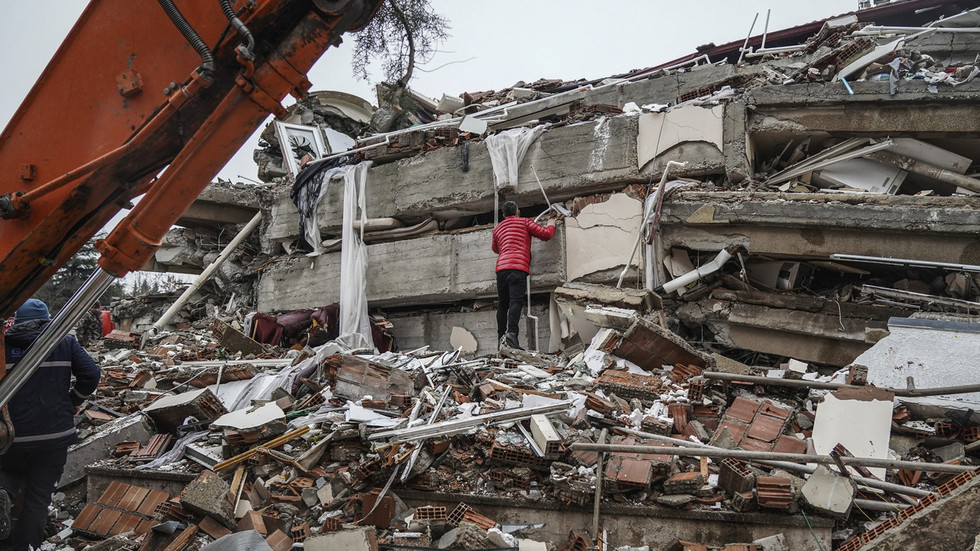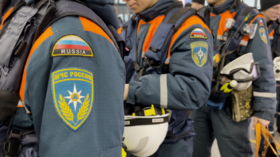
Rescue teams continue to look for survivors among leveled buildings

A rescuer searches for survivors of an earthquake in Gaziantep, Türkiye, February 6, 2023. © AP Photo / Mustafa Karali
The death toll from catastrophic earthquakes in southern Türkiye and northwestern Syria surpassed 4,000 on Tuesday morning.
According to Turkish authorities, over 3,300 people were killed and over 20,400 were injured.
The country’s disaster management officials said that almost 6,000 buildings were destroyed.
President Recep Tayyip Erdogan declared a seven-day period of national mourning for the victims of the disaster, which he called the strongest the country has seen since the 1939 Erzincan earthquake.
Anadolu news agency reported on Tuesday that a woman and her three children were rescued after spending around 28 hours under the rubble in Gaziantep.
Turkish Defense Minister Hulusi Akar said the Armed Forces established an air corridor to deliver rescue teams and aid to the disaster zone. “We have maximized the readiness of our aircraft to provide the necessary transportation service,” Akar told reporters.

Read more
A 7.7 magnitude quake struck Kahramanmaras Province shortly after 4am local time on Monday, with the epicenter in the Pazarcik district. It was then followed by two earthquakes in Gaziantep Province, recorded at 6.4 and 6.5 magnitude, respectively.
In neighboring Syria, the Health Ministry said more than 800 were killed and roughly 1,500 injured in government-controlled areas. Massive destruction and hundreds of casualties were separately reported in Idlib Province, which is not controlled by the government.
Syrian Assistant Health Minister Ahmad Dumeira said additional ambulances and mobile clinics had been dispatched to the affected regions. The Syrian government has appealed for help to UN members and international organizations, including the International Committee of the Red Cross.
Many countries have offered assistance to Ankara and Damascus and sent teams to help with the rescue efforts. Russia has sent over a hundred emergency response specialists, who will work around the clock in the affected areas.




